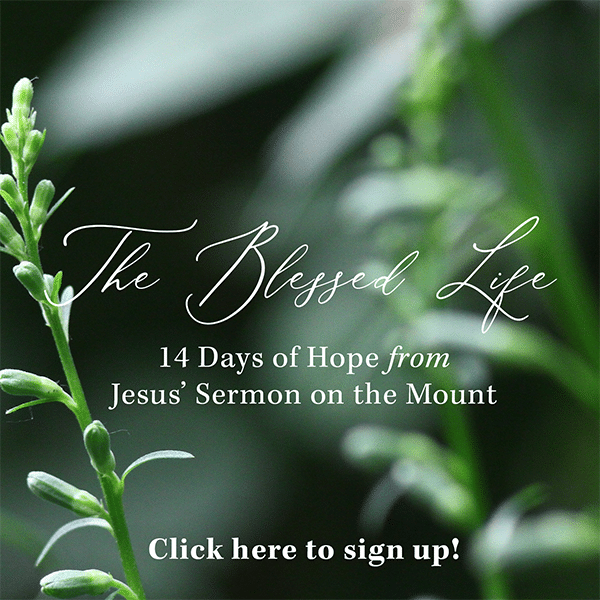I was awake at 3:30 in the morning. My mind racing as it’s been doing non-stop the past few weeks or so. Certain realities of life that have mostly felt concrete, prior to very recently, are suddenly gone or simply up in the air. Where will it all land? We don’t know, is what the professionals keep saying.
As my mind flitted about from one worry and prayer to another the sound of birds relentlessly pecked at the door of my thoughts. Why are the birds chirping at this hour? I moaned while fluffing my pillow for the countless time. Don’t they know it’s the middle of the night!
Scientists call this early morning bird singing the dawn chorus, which is most noticeable in spring when birds are migrating or mating. The name dawn chorus sounds so delightful except when you’re trying to sleep in the middle of a worldwide pandemic. And, yet, maybe this is the point: singing in the middle of a storm, reaping during a time of scarcity, staying on mission. Maybe the birds have something to teach us after all, I mused.
CONSIDER THE BIRDS
Before I could complete the thought I realized it’s not actually the birds but Jesus who has something to teach us through the birds. The comforting lesson found in Matthew 6:25-26 that Jesus delivered over 2,000 years ago about the birds of the sky feels particularly meaningful right now.
“Therefore I tell you: Don’t worry about your life, what you will eat or what you will drink; or about your body, what you will wear. Isn’t life more than food and the body more than clothing? Consider the birds of the sky: They don’t sow or reap or gather into barns, yet your heavenly Father feeds them. Aren’t you worth more than they?”
Some translations say look at or observe the birds. The Greek word means to look intently. In other words, we’re to reflect on them, really think about how they go about their lives, and then listen to what Jesus is telling us about our own, and about our heavenly Father’s provision. We notice from Jesus’ teaching that the birds don’t sow, reap, or store, which are have to do with our ability to plan.
Yesterday I sowed seed in my backyard garden and I checked the seed packet for the section that says, days to maturity. This tells me when I can reap the lettuce, kale, and spinach I planted. Sadly, my little raised beds don’t produce enough for me to store anything in barns (I’ll let you know when I’ve reached that level), but if I could store, I would. Planting, reaping, and harvesting require reason and foresight.
HOW MUCH MORE ARE YOU WORTH?
Point being, we humans have the faculties to plan, save, invest, freeze the ground beef until we need it in a few weeks. The birds cannot do this! They live day to day, meal to meal, worm to worm (ne’er was there a pleasanter thought). And still they are fed. Still, they are nourished. Still they have enough for their chicks.
How can this be? Jesus wants us to ask ourselves. He quickly answers. Because we have a heavenly Father who feeds them. And that heavenly Father isn’t just the Father of the birds; He is your heavenly Father. And how much more are you worth to Him than the birds? The answer is clear: infinitely more.
[click_to_tweet tweet=”You can have confidence your Father will take care of you.” quote=”You can have confidence your Father will take care of you.”]
During this season where what you sowed might have just disappeared, or what you reaped is no longer enough to be stored into barns, or what you had in your barns was supposed to be for tomorrow but now needs to be for today, you can have confidence your Father will take care of you. This is not pie in the sky theology, but an evident truth seen in the fabric of nature of which God is the Creator.
YOU MAY BE PART OF GOD’S PROVISION
It’s natural to think, well, what about those who are homeless? Those in poverty? Those who go hungry? Part of what Jesus is demonstrating is a general principle that stems from God’s generous care of creation found in Genesis 1–2. Jesus reminds us of this care by pointing to two everyday examples, birds and flowers.
Generally speaking, the birds of the air have food, and the flowers of the field are beautifully clothed. Through them we see the fundamental goodness of God, His care for creation, and the ways we can witness this in everyday life. Jesus wants us to remember that we’re infinitely more valuable to Him than birds and flowers and that He will provide for us in even more abundant ways.
In addition, if we go back to Matthew 5:13-16, we see that Jesus calls us to be salt and light, and to do “good works” for others, which can also be understood as “tangible deeds of mercy.” And if you go back to Matthew 6:19-24, Jesus teaches radical generosity. We can look to countless parts of Scripture where God clearly calls His people, His church, to meet the needs of the hungry, hurting, and homeless.
While God is generous in His care for us through creation, we as the church are part of His answer in meeting the needs of the world around us. We are part of God’s generous provision for others.
[click_to_tweet tweet=”While God is generous in His care for us through creation, we as the church are part of His answer in meeting the needs of the world around us. We are part of God’s generous provision for others.” quote=”While God is generous in His care for us through creation, we as the church are part of His answer in meeting the needs of the world around us. We are part of God’s generous provision for others.”]
You may be in a time of need where you’re trusting God and His provision. Or you may be in a time of abundance and He’s calling you to give to others. No matter what season you’re in, my prayer is that in the middle of the night, in the middle of unprecedented times, when we hear the birds chirping with purpose and delight, we will remember the words of Jesus and so add our hallelujahs to the dawn chorus.
The post Consider the Birds appeared first on LifeWay Voices.
WAYS TO STAY CONNECTED AND TO GIVE
For more posts like this delivered straight to your inbox, sign up for Kelly’s FREE 14-day devotional, The Blessed Life. Sign up here!
If you would like to partner with us at Justice & Mercy International to provide food, medical supplies, and disinfectants to some of the hardest hit parts of the globe, see how you can help here!









